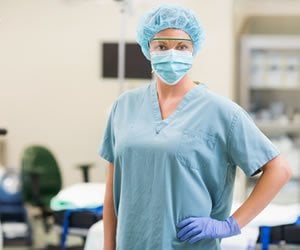
Medical School
Central to the skillset of every physician is the differential diagnosis; this is the process by which new patients are evaluated to establish the most likely diagnosis. Similarly, the first clinical year of medical school is like ... Read more
Brent Schnipke
Updated June 26, 2022 by Brent Schnipke

Residency and The Match
If you are in medical school, you have been making choices for a long time now, from what to major in as an undergraduate to what volunteer work during your gap year will give you ... Read more
Brian Wu
Updated June 26, 2022 by Brian Wu

Medical School
Updated December 1, 2021. The article was updated to correct minor grammatical errors and to update formatting. Medical school, for some, remains the ultimate “glass ceiling” — the unseen yet unbreakable barrier that stands in ... Read more
Coalition for Disability Access
Updated June 26, 2022 by Coalition for Disability Access

Unmatched
I was in the middle of a fairly busy day on the palliative care ward, so I had to slip away to the quiet stairwell in order to pull up my Match Day result on ... Read more
Romesa
Updated June 26, 2022 by Romesa

Medical School
Interview season. The time of year that roads and skies swarm with the best and brightest medical students to all corners of the country taking aim at the next step in their training – residency. ... Read more
Myers Hurt
Updated June 26, 2022 by Myers Hurt

Medical
What You Should Know is an ongoing series covering a range of informational topics relevant to current and future healthcare professionals. Even for student doctors who are in training to be pediatricians or specialists in ... Read more
Brian Wu
Updated March 16, 2019 by Brian Wu

Medical School
The transition to clinical clerkships in medical school comes after two years of lectures, in-class exams, and national board exams. Without a doubt, it is an exciting transition. It is a key stage in the ... Read more
AJ Nguyen
Updated June 26, 2022 by AJ Nguyen

Medical School
It is that time of year again. Medical school students across the country are preparing applications for residency and pursuing audition rotations at residencies they are hoping to woo into an interview and hopefully to match ... Read more
Jeff Steiner
Updated June 26, 2022 by Jeff Steiner

Medical School
As a medical student, you spend four years of college and the first two years of medical school studying non-stop for what feels like thousands of hours, cramming your brain with knowledge. But when the ... Read more
Judith Kalinyak
Updated June 26, 2022 by Judith Kalinyak

Medical School
It has been nearly a year now since I walked across the stage at Carnegie Hall to accept my diploma. Now approaching the end of internship – let’s say that again, one more time, with ... Read more
Megan Riddle
Updated June 27, 2022 by Megan Riddle

Medical School
Republished with permission from here. Congratulations! You’ve made it to the clinical portion of medical school. Now you’ll work alongside interns, residents, attendings, pharmacists, social workers, and a myriad of other health care workers to ... Read more
Rishi Kumar
Updated June 27, 2022 by Rishi Kumar

Medical School
“Knowing yourself is the beginning of all wisdom.” – Aristotle Even at the time, I realized it was an exquisitely simple task: I had to walk into the exam room, introduce myself as a medical ... Read more
Megan Riddle
Updated June 27, 2022 by Megan Riddle

Medical School
Choosing a field of medicine is likely the most important decision a medical student will make during their career. The vast majority of residents complete their residencies and practice in the field in which they’ve ... Read more
Mimi Knoll
Updated June 27, 2022 by Mimi Knoll

Medical School
Residents, don't forget where you came from when you're not a student anymore.
Lindsay Heuser
Updated June 27, 2022 by Lindsay Heuser
Pharmacy
Dr. Barb Kasper and Dr. Sarah Lawrence share tips to help students get the most out of their APPE rotations.
Sarah Lawrence
Updated February 27, 2019 by Sarah Lawrence
Residency and The Match
An interview with Dr. Su-Ting Li, program director of the University of California Davis pediatric residency program and Vice Chair of Education in the Department of Pediatrics.
Rajani Katta and Samir Desai
Updated June 27, 2022 by Rajani Katta and Samir Desai

Medical School
Many medical students choose to participate in an international elective as part of their education. Dr. Alison Hayward provides tips for making your international experience as success.
Lee Burnett
Updated June 27, 2022 by Lee Burnett

Medical School
Are you suffering from roundsitis? Hypercaffeinemia? Overnight call adjustment disorder? Scutworkophobia? My friend, there is hope. I strongly advise you to look into the specialty of emergency medicine – in which the medicine you practice ... Read more
Lee Burnett
Updated June 27, 2022 by Lee Burnett
















